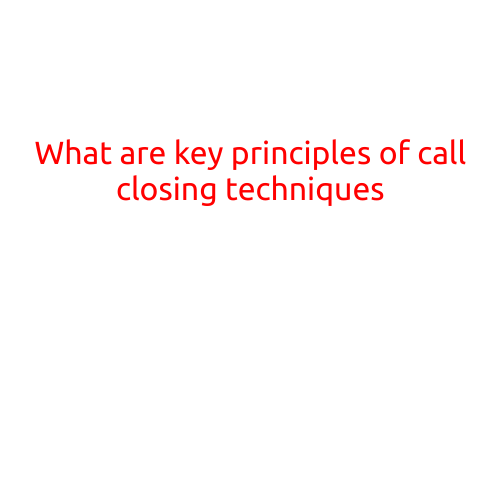
When Should You Practice Active Listening on Calls?
In today’s fast-paced world, effective communication is crucial for success in both personal and professional settings. With the increasing use of phone calls and video conferencing, active listening has become more important than ever. But when should you practice active listening on calls?
What is Active Listening?
Before we dive into when to practice active listening, let’s define what it means. Active listening is a communication technique that involves fully focusing on the speaker, understanding their message, and responding appropriately. It’s not just about hearing the words, but also about understanding the emotions, tone, and underlying message behind them.
When You Should Practice Active Listening on Calls
There are several scenarios when active listening is especially important on calls:
- When You’re in a High-Stakes Conversation: When the conversation is about a critical issue or a deadline-sensitive matter, active listening is crucial to ensure you understand the other person’s needs and concerns.
- When You’re Talking to a Technical Expert: When discussing complex technical topics, it’s easy to get lost in jargon or technical terms. Active listening helps you understand the expert’s message and ask clarifying questions.
- When You’re Dealing with Conflict or Issues: During sensitive or emotional conversations, active listening helps to diffuse tension and prevent misunderstandings.
- When You’re Building a Relationship: Whether it’s a personal or professional relationship, active listening shows that you value the other person’s thoughts and opinions, building trust and rapport.
- When You’re in a Busy or Noisy Environment: With increasing distractions in our personal and professional lives, calls can be interrupted or disrupted by background noise. Active listening helps you focus on the conversation, even in challenging environments.
How to Practice Active Listening on Calls
If you’re not used to practicing active listening, it may take some effort to develop this habit. Here are some tips to help you get started:
- Give the Speaker Your Undivided Attention: Minimize distractions and eliminate multitasking during the call.
- Use Open-Ended Questions: Instead of asking yes or no questions, use open-ended questions that encourage the speaker to share more information.
- Paraphrase and Summarize: Repeat back what you’ve heard in your own words to ensure understanding and show that you’re engaged.
- Avoid Interrupting: Let the speaker finish their thoughts before responding.
- Take Notes: Writing down key points or ideas can help you stay focused and recall important details later.
Conclusion
Active listening is a valuable skill that can benefit both personal and professional relationships. By understanding when to practice active listening on calls, you can improve your communication skills, build stronger relationships, and achieve your goals. Remember to give the speaker your undivided attention, use open-ended questions, paraphrase and summarize, avoid interrupting, and take notes to enhance your listening skills. With practice, active listening will become second nature, and you’ll be more effective in your personal and professional interactions.





